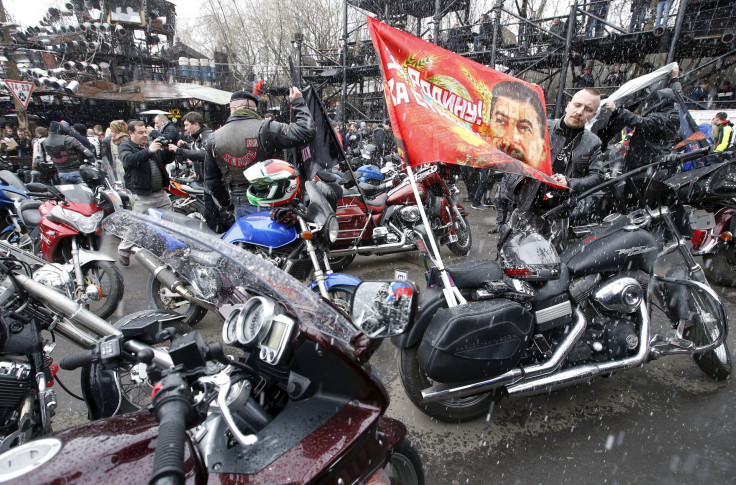Russia Responds To Germany's 'Night Wolves' Ban, Defends Ultranationalist Biker Gang

Russia’s Foreign Ministry denounced Friday Germany’s decision to ban leaders of the ultranationalist Russian motorcycle gang known as the Night Wolves from entering its territory. Members of the Night Wolves, who earned international scorn for their open support of Russia’s annexation of Crimea in March 2014, are trying to retrace the Soviet Red Army’s march toward Berlin 70 years ago at the end of World War II.
Germany’s actions were an effort at “disrupting and discrediting the Roads of Victory motor rally initiated by the Russian motorcyclists organization and dedicated to the 70th anniversary of victory in the Great Patriotic War of 1941-1945 and the end of World War II in Europe,” the Foreign Ministry said in a statement, according to Russian news outlet TASS. The Foreign Ministry declared Germany’s decision was “unfounded, discriminatory and politically motivated.”
Both Germany and Poland denied the Night Wolves entry to their countries during the motorcycle rally, which began in Moscow April 25. German authorities announced last month they would stop the group’s leaders from entering the country and said border guards were informed to deny visas the group obtained under misleading circumstances.
“Leading members of the Night Wolves will be refused entry into Germany. Visas obtained under false pretenses have been canceled,” sources within the German government told Reuters.
Polish authorities said the Night Wolves’ trip was a “provocation” and had its border security search and turn away the group’s members. Alexander Zaldonstanov, one of the Night Wolves’ leaders, described the refusals as a case of “Russophobia” and said European leaders were attempting to belittle Russia’s role in World War II.
Zaldonstanov, an ally of Russian President Vladimir Putin, is a founder Eastern Europe’s anti-Maidan movement, which opposes Ukraine's Euromaidan activists who brought down pro-Russian President Viktor Yanukovych in February 2014.
© Copyright IBTimes 2024. All rights reserved.





















